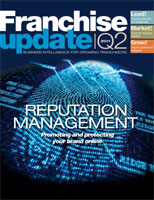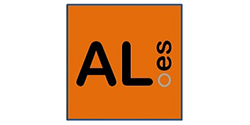Cash or Credit?: Tracking The Changes in How Consumers Pay
Franchise Payments Network processes payments for more than 120 franchise chains across the retail, restaurant, service, and lodging sectors. This makes us uniquely positioned to provide a snapshot of the economy in franchising. Over the next few issues we are going to drill down and decipher what we are seeing in payment trends in the franchise space, with the goal helping you make better operational and marketing decisions. Let's begin with a 30,000-foot look at how consumers pay for transactions in franchise businesses.
Payments Accepted
Type |
2005 |
2010 |
Cash |
21% |
19% |
Checks |
28% |
18% |
Credit cards |
25% |
24% |
Debit cards |
13% |
21% |
Other* |
13% |
18% |
*Other: ACH, prepaid gift cards, and EBT; gift card volume for 2010 was 10% higher than 2009; EBT doubled in 5 years. |
||
Here's what consumers typically spent in franchise businesses last year, by type of payment. In general, the forms of payments with lower average ticket size are increasing, and those with higher average tickets are decreasing.
Payment types, 2010
Type |
Ticket size (avg.) |
Cash |
$32 |
Checks |
$82 |
Credit cards |
$75 |
Debit cards |
$37 |
ACH |
$110 |
Gift cards |
$32 |
EBT |
$29 |
Drilling down
- Same-store sales. In 2010, same-store sales were up 6.7% over 2009, in contrast to 2009's 8.1% dip from 2008. The increase in 2010 was driven primarily by two verticals: healthcare and service industries (handyman, plumbing, etc.).
Same-Store Sales, by Vertical |
|
(2010 vs. 2009) | |
Healthcare |
+32% |
Hair salons |
+4% |
Services |
+23% |
Lodging |
-7.5% |
Spa (tanning, gyms, etc.) |
-15% |
Restaurants (all) |
-2% |
Types of payments
Overall, we have seen a shift away from credit use to other, more economical payment types over the past few years.
- Credit card processing volume in 2010 was down about 0.5% from the previous year--the first time that credit card processing volume in the U.S. declined. Banks tightened credit limits of cardholders in the last half of 2009 and 2010 as a result of the Credit Card Accountability, Responsibility, and Disclosure (CARD) Act of 2009. This has driven consumers to more of a cash mindset.
- Debit use (both PIN and signature) increased over this same period by 8.9%. ACH use by our customers increased over this same period by 35%, as more merchants are relying on recurring payments to reduce their processing costs.
- Checks. Traditional check usage is pretty much nonexistent in our portfolio since most prefer to accept only signature or PIN-based debit at the point of sale. Check use is still widespread as means to pay bills and for B2B invoicing.
- Mobile payments will continue to explode, and service companies will continue to adopt this technology. Restaurants will finally begin to go mobile to take advantage of the swiped rates. Technology continues to get cheaper and better.
- Alternative payments will continue to grow--PayPal, Google, and Bling. You will likely even see Apple get in the game.
What's ahead
Sen. Dick Durbin (D, Ill.) has introduced a bill that would limit debit fees to merchants (capping transaction costs at 12 cents, versus today's average of 56 cents for signature and 23 cents for PIN). This should be good for merchants, who should be able to push more transactions into the debit buckets and save processing fees, right? I don't think so.
Remember what happened with the CARD Act? This was supposed to help consumers by limiting the usurious fees card issuers could charge. Well, the card issuers could no longer charge those rates, but those customers are where they made the most revenue. This was one of the worst things to pass during a down-turning economy as it slowed commerce even further. Banks immediately reduced the "open to buy" on pretty much all cardholders (less credit = less sales). Card issuers are also the card acquirers, so they lost money on the consumer side and raised interchange on the merchant side by the most in history (higher cost of goods and services to consumers = less sales).
That's why I think the Durbin bill will actually have a reverse effect than intended and create more credit and fewer debit transactions. Why? The banks that issue free debit cards with each account are the ones making the lion's share of the debit interchange today. Under this bill, those banks will be losing around 70 percent of the revenue they enjoy today. I think the days of "everyone gets a free debit card" are over. Banks will not be giving these out any more, and the ones that do will attach some pretty substantial consumer fees. So while the merchants would like to take them because of their lower transaction cost, the fact is there will be fewer debit cards in the marketplace and consumers will be less likely to use them since it might be cheaper for them to use their credit card (which the banks will be pushing because of their higher revenue).
We will explore more of these trends and dive deeper into all of these topics in future issues. If you have specific questions or topics you would like to see covered, please let us know.
Tom Epstein is CEO and founder of Franchise Payments Network, an electronic payments processing company dedicated exclusively to helping franchisors and their franchisees improve system performance, increase revenue, and reduce expenses. More than 120 franchise systems have endorsed FPN's products and services. Services include processing credit and debit cards, checks, ATM sales and service, and payroll. Contact him at 866-420-4613 x1103 or tomepstein@franchisepayments.net.
Share this Feature
Recommended Reading:
Comments:
comments powered by DisqusFRANCHISE TOPICS
- Multi-Unit Franchising
- Get Started in Franchising
- Growth
- Operations
- Open New Units
- Leadership
- Marketing
- Technology
- Legal
- Awards
- Rankings
- Trends
- Featured Franchise Stories
FEATURED IN

Franchise Update Magazine: Issue 2, 2011






 The franchise listed above are not related to or endorsed by Franchise Update or Franchise Update Media Group. We are not engaged in, supporting, or endorsing any specific franchise, business opportunity, company or individual. No statement in this site is to be construed as a recommendation. We encourage prospective franchise buyers to perform extensive due diligence when considering a franchise opportunity.
The franchise listed above are not related to or endorsed by Franchise Update or Franchise Update Media Group. We are not engaged in, supporting, or endorsing any specific franchise, business opportunity, company or individual. No statement in this site is to be construed as a recommendation. We encourage prospective franchise buyers to perform extensive due diligence when considering a franchise opportunity.